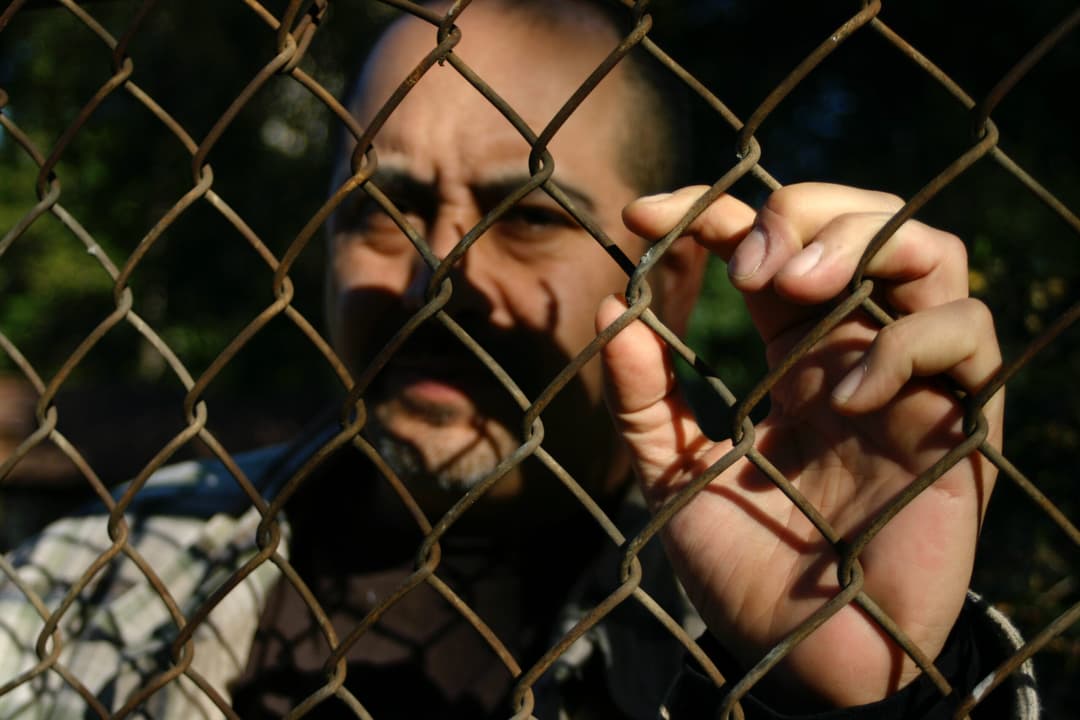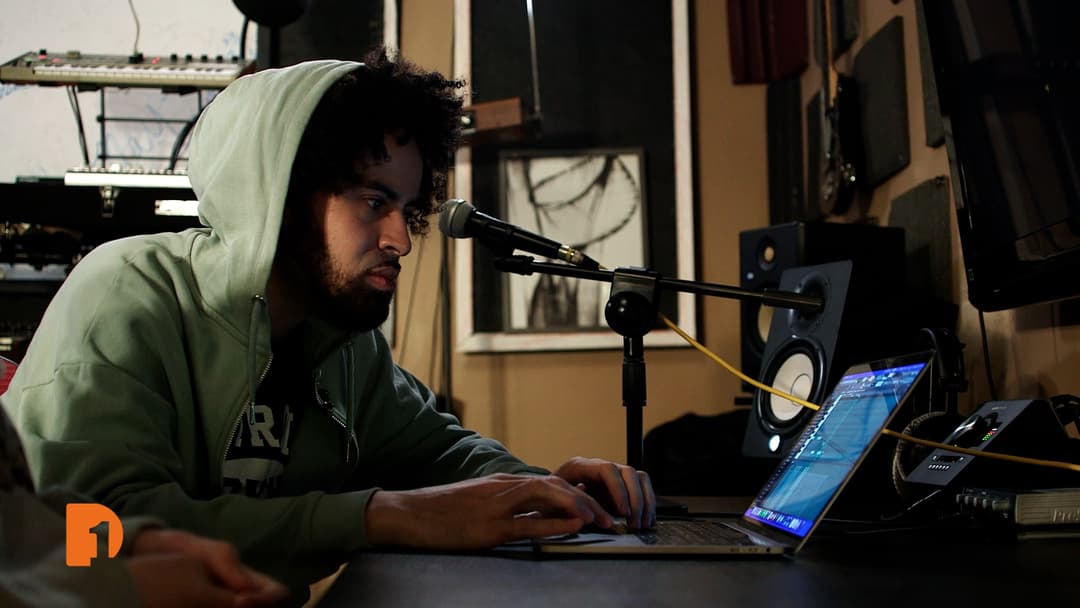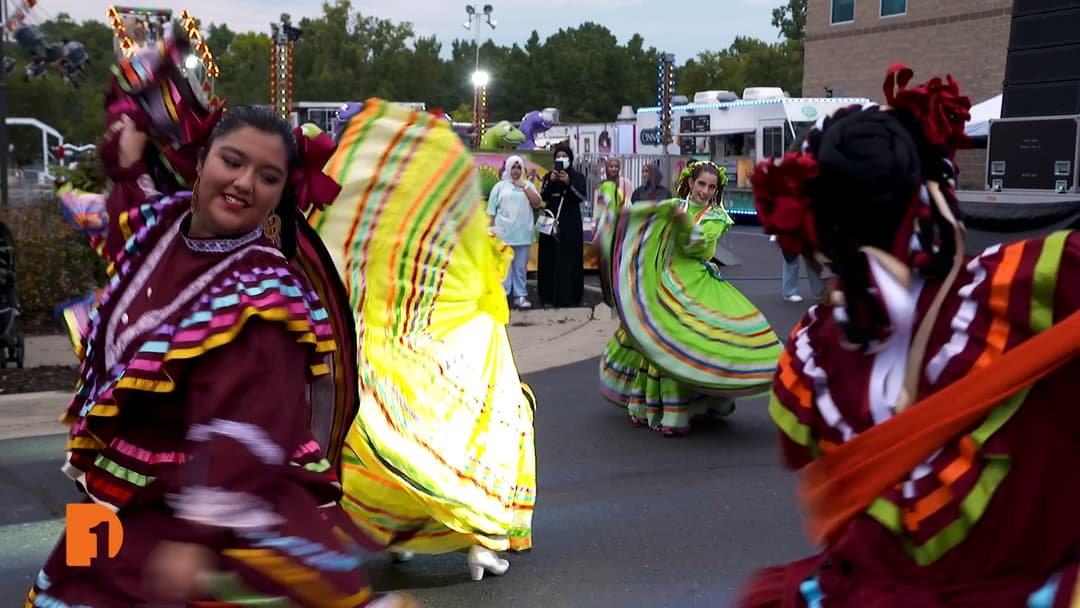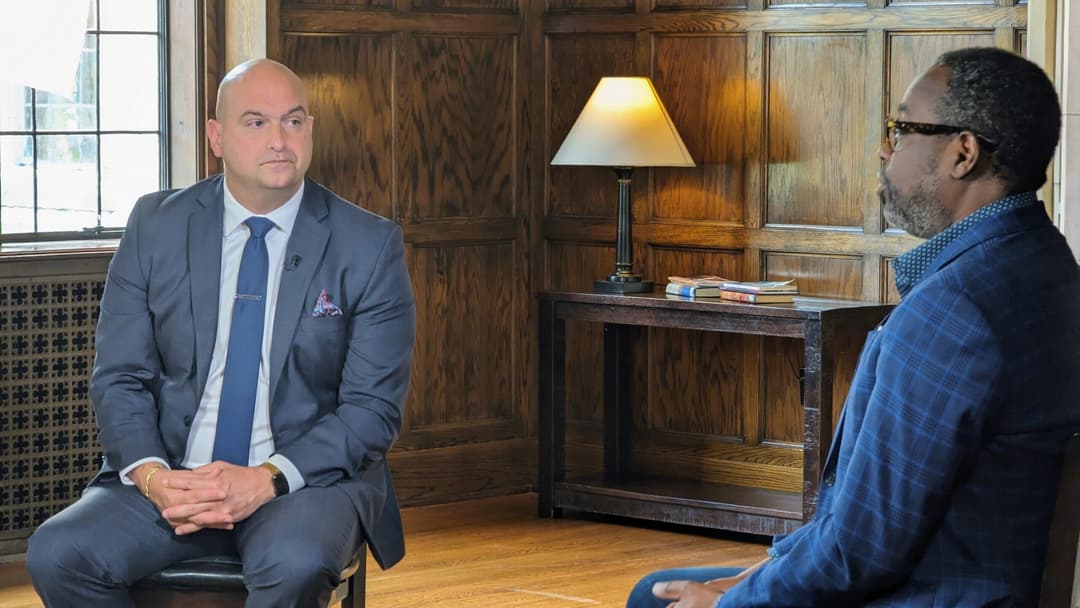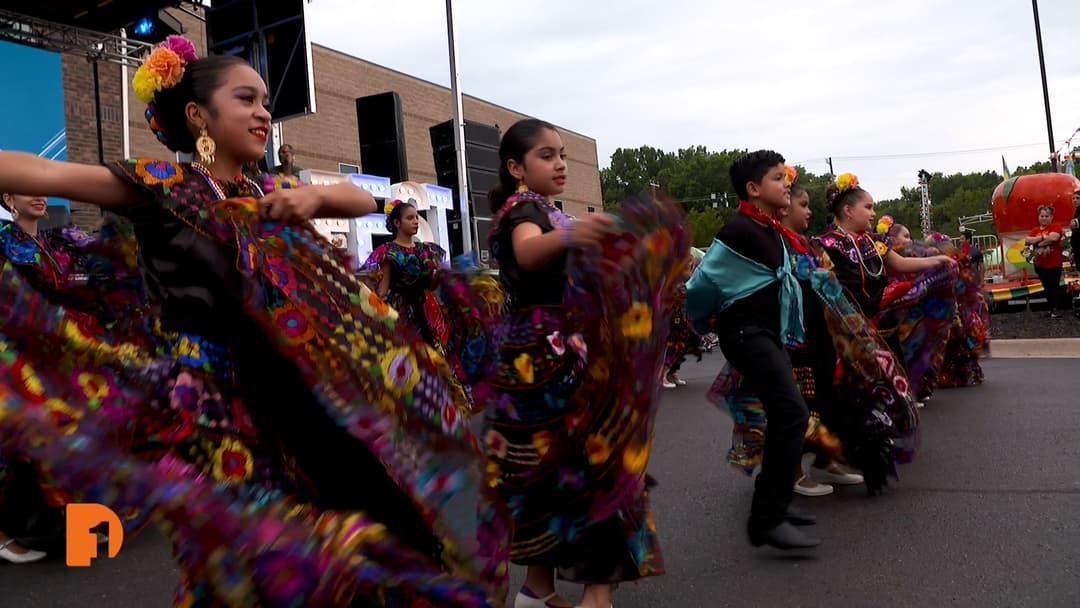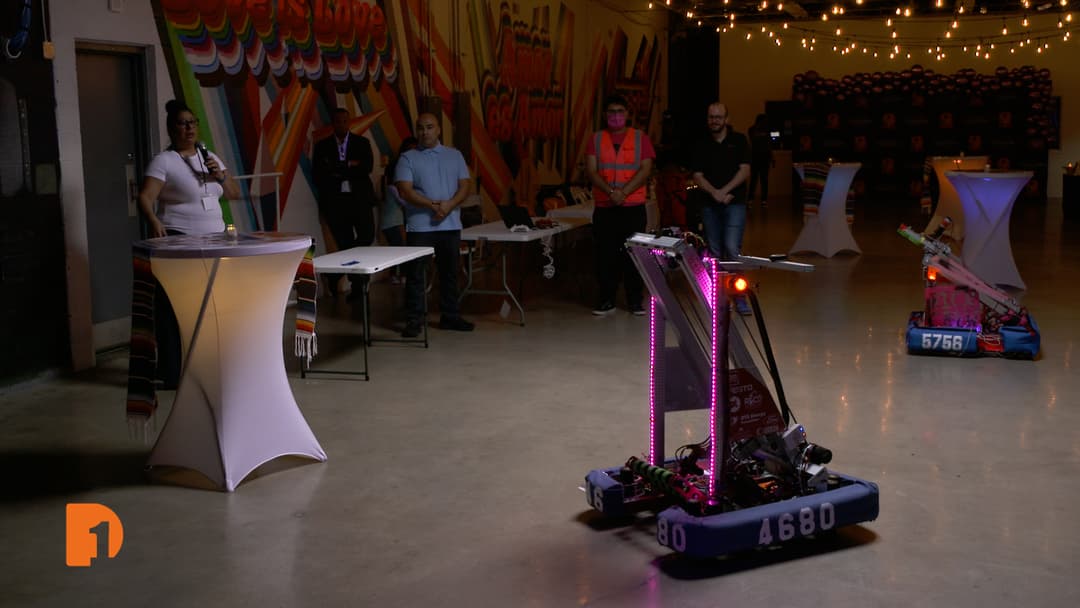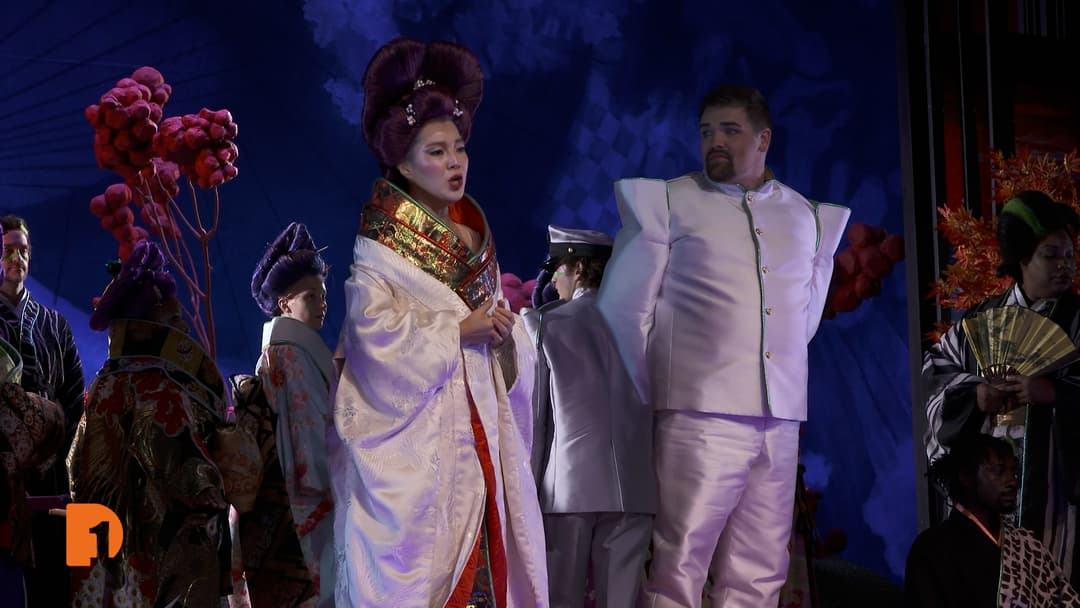Ballet Folklorico de Detroit keeps Mexican folkloric dance traditions alive in Southwest Detroit
Sep 8, 2022
A rich tradition of Hispanic culture lives within Southwest Detroit’s neighborhoods. It’s not only found in the corridors of Mexicantown but in a local dance troupe, Ballet Folklorico de Detroit, whose mission is to keep the Mexican traditions of folkloric dance alive for a new generation of Mexican Americans living here. In recognition of Hispanic Heritage Month Sept. 15 – Oct. 15, One Detroit contributing producer Daijah Moss takes a trip to Southwest Detroit to learn more about local dance troupe.
Ballet Folklorico de Detroit Co-Founders Janette and Lance Rodriguez join Moss to talk about giving younger Mexican Americans a sense of pride in their heritage through the folkloric dance traditions, the role dance plays in Mexican culture, and the numerous styles of dance and clothing dancers might wear based on the region where the dance originated.
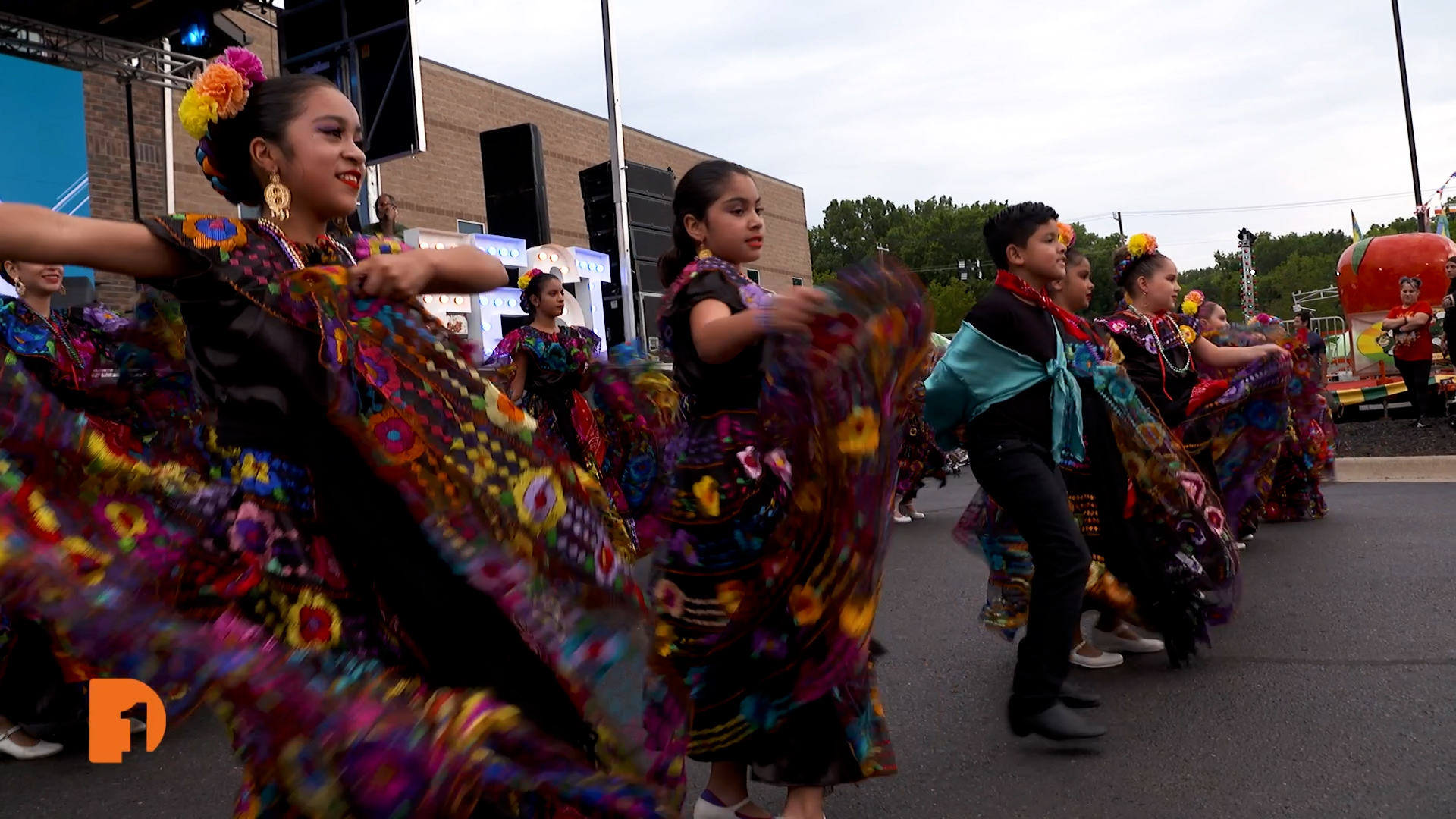
Plus, Moss talks with four students — Adiley and Adilen Ramirez Garcia, and Karen and Alondra Castellanos — about how being involved in the organization has helped them connect with and learn about their Mexican heritage.
Full Transcript:
Janette Rodriguez, Co-Founder, Ballet Folklorico de Detroit: Our mission is to emphasize or to bring to, Southwest Detroit, and Michigan and our community, an awareness of the Mexican Folkloric culture, like the Mexican dancing and its traditions
Lance Rodriguez, Co-Founder/Instructor, Ballet Folklorico de Detroit: You know, Folklorico is alive in Mexico, it’s not over here. And so, one of our missions, right, our students predominantly have Mexican heritage, you know, they’re Americans, but they have Mexican heritage, and we want to give them a sense of pride in their culture. You know, they can’t experience it here, they have to go to Mexico to experience it, you know, so we kind of try to bring it here, so that way they can be like, oh, this is what it’s like, you know, to be over there, to be over there and to experience all of this stuff. So, we’re trying to give them like, oh, have pride, you know, especially in these days and times, it doesn’t feel good a lot of times in the news and everything to be Hispanic.
Janette Rodriguez: If you’ve ever gone to a Mexican Folkloric performance, you’ll see the girls wear or the performers wear different costumes. Like one time, you know, one time they might have a big dress on, another time, a small dress on. That’s because all the states of Mexico and regions within those states, all have different styles of dance. So and with those different styles, sometimes there was an influence, like an Indigenous influence or a Spanish influence. And it’s very serious, keeping those traditions alive and not changed. So, there’s a whole culture behind it, like if you’re doing this type, like right now we’re learning in Sinaloa, Sinaloa Mestizo, and there’s different postures or different ways to do the dresses, there’s different ways, the steps, everything is unique to that.
Lance Rodriguez: The role that dance plays in Mexican culture, there’s really three, right? It’s recreation because it’s fun to dance, right? Everybody goes and they love to dance. It’s educational because you’re preserving the traditions and the culture, right? Because they can still–like if they weren’t making a concentrated effort to preserve it, right, it could change, it could just change, so it’s educational. And then, the third thing is that it’s good for your health.
Lance Rodriguez: So, anyone can join Ballet Folklorico de Detroit. One of the first things I ask people, especially if they’re not Mexican, right, they’re like, oh, well, I’m not Mexican, I was like, “well, do you like Mexican food?” Right? And most of the time, because Mexican food is so good, they say, “Yes, I love Mexican food.” And I’m like, “But you’re not Mexican. So, why do you have to be Mexican to love Mexican dance?”
Adilen Ramirez Garcia, Student, Ballet Folklorico de Detroit: We’ve been part of the Ballet Folklorico de Detroit group for six months. I like being a student because there’s like so many kids there because in our other dance group that we were in, there was like not that much kids. So, I like being part of like the group of kids that are in this group.
Adiley Ramirez Garcia, Student, Ballet Folklorico de Detroit: What most connects me to the Mexican Culture is the movement because there’s like these different types of movements with like, like putting your skirt really high or like low, stuff like that.
Karen Castellanos, Student, Ballet Folklorico de Detroit: I’ve been a part of the dance group six years. Before I joined the dance group, I did not know much about the dances and the culture. What inspired me to join the dance group is watching my sister dance and how she was having fun.
Alondra Castellanos, Student, Ballet Folklorico de Detroit: I’ve been in the group since seven years ago. My favorite part of being part of it is getting to dance, getting to perform and getting to know new places.
Lance Rodriguez: So, we really want the crowd to feel like if they’re watching us perform Sinaloa Mestizo, that they’re in Sinaloa watching a performance from the people in Mexico doing the dance. So, that’s what I want, I want to transport them to Mexico so they can experience it. And then, they’ll be in awe, like, Oh, my God, I just went to Mexico in these 3 minutes on stage.
When we’re dancing on stage, we’re really trying to keep these traditions alive. And there’s people here who haven’t experienced it, who, even though they know Southwest Detroit has this vibrant Mexican culture, right, they don’t know it. So, when they come and they see us, I really want to impact them, like, yes, Southwest Detroit. There’s this culture that’s alive here, right, and that, when they come and they see us, they can really feel it, right? When they go to one of our shows, they feel Southwest Detroit, like, oh yeah, this is why Southwest, they always talk about Mexicantown, because it’s there, we’re there, you know.
Stay Connected:
Subscribe to One Detroit’s YouTube Channel & Don’t miss One Detroit Mondays and Thursdays at 7:30 p.m. on Detroit PBS, WTVS-Channel 56.
Catch the daily conversations on our website, Facebook, Twitter @DPTVOneDetroit, and Instagram @One.Detroit
View Past Episodes >
Watch One Detroit every Monday and Thursday at 7:30 p.m. ET on Detroit Public TV on Detroit Public TV, WTVS-Channel 56.
Stay Connected
Subscribe to One Detroit’s YouTube Channel and don’t miss One Detroit on Thursdays at 7:30 p.m. and Sundays at 9 a.m. on Detroit PBS, WTVS-Channel 56.
Catch the daily conversations on our website, Facebook, Twitter @OneDetroit_PBS, and Instagram @One.Detroit
Related Posts
Leave a Reply
Your email address will not be published. Required fields are marked*


